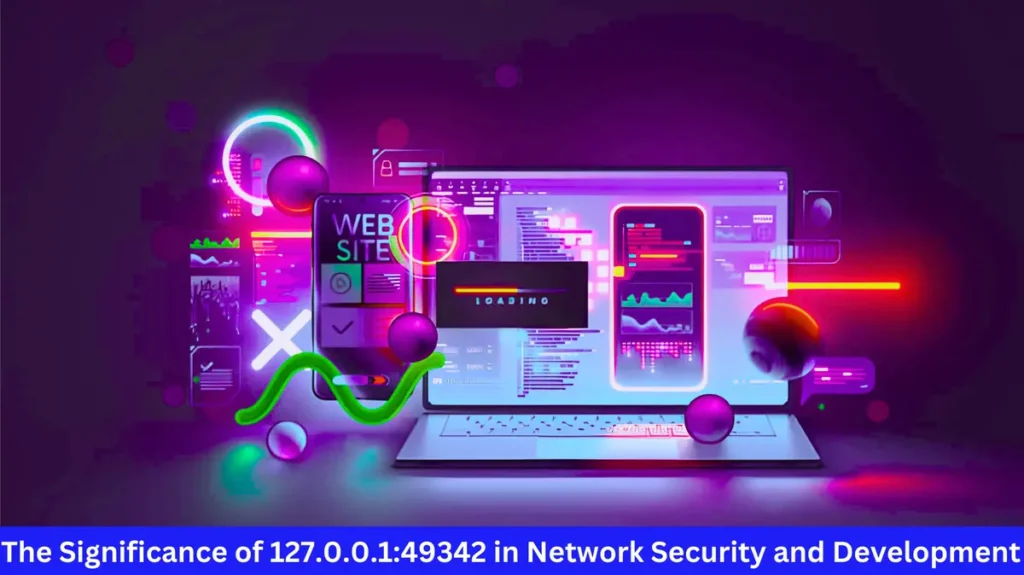In the digital world, 127.0.0.1:49342 IP addresses and port numbers serve as critical identifiers in the networking architecture, allowing data to be sent and received accurately between devices. One such IP address that holds significant importance in networking and development is 127.0.0.1. Coupled with a port number, such as 49342, this address becomes an essential tool for developers and network security professionals. This article will explore the technical implications and uses of 127.0.0.1:49342, providing insights into its role in software testing, system security, and much more.
What is 127.0.0.1:49342?
127.0.0.1 is commonly known as the “localhost” address. It refers to the IP address that loops back to the user’s computer. Accessing this address does not mean reaching out to a live network but communicating internally within your system. This makes 127.0.0.1 an invaluable tool for developers and testers, as it allows them to test and configure software without the need to interact with external network environments.
The Role of Port 49342
A port number in networking is like an apartment number in a large building. While the IP address identifies the building itself, the port number specifies which door to knock on. Port 49342 is typically not assigned to any common services, which makes it available for private use, such as for running local applications without interference. In development, using such a high-numbered, non-standard port reduces the likelihood of port conflicts with well-known services running on lower numbers (such as 80 for HTTP or 443 for HTTPS).
Use Cases of 127.0.0.1:49342
Local Development Servers Developers often run web servers on their local machines using ports like 49342 to test websites or software applications before they are deployed to a production environment. This setup ensures that any changes can be tested in a controlled, secure environment.
Network Security Testing
Cybersecurity professionals use 127.0.0.1 along with various port numbers to test network security measures. By simulating attacks on 127.0.0.1:49342, they can observe how the software responds to unauthorized access attempts without posing any real threat to the network.
Software Configuration
Certain software configurations require specifying an IP address and port combination to work correctly, especially in complex, multi-service architectures. 127.0.0.1:49342 can be used for such configurations to ensure services communicate internally without exposure to external threats.
Advantages of Using Localhost
Security: Testing and development on 127.0.0.1 are secure since it does not involve data leaving your machine.
Control: It allows full control over the development environment, enabling developers to configure and test under various scenarios.
Performance: Local testing eliminates network latency, providing a faster feedback loop for debugging and development.
Challenges and Considerations
While using 127.0.0.1:49342 provides many benefits, there are several considerations to keep in mind:
Isolation from Real-World Scenarios: Since localhost testing does not mimic the exact conditions of a live network, additional testing in real network environments is necessary.
Configuration Complexity: Sometimes, configuring software to use specific ports can be challenging, especially in environments with strict security controls or limited administrative privileges.
Conclusion
Understanding and utilizing the 127.0.0.1:49342 address combination is crucial for anyone involved in software development or network security. It provides a safe, controlled way to test applications and systems, ensuring that any deployments to production are as flawless as possible. By leveraging the power of localhost, developers and IT professionals can enhance their workflows, improve security, and optimize performance.
For those new to network configurations or seeking to deepen their understanding of backend technologies, grasping the functionality and strategic use of 127.0.0.1:49342 is an essential step towards mastery in the digital age.


